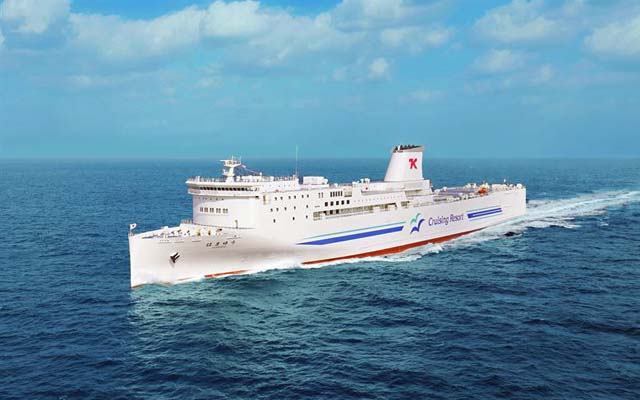Wärtsilä has signed two lifecycle agreements covering two ferries owned by Japanese operator Shin Nihonkai Ferry (SNF), which are each powered by four Wärtsilä 31 engines.
The agreements are designed to provide optimal operational support in ensuring reliable and efficient performance for the ferries, which serve the busy Yokosuka and Shinmoji route. As ferries have an important role to play in meeting the growing demand for environmentally sustainable transport options, ferry operators are under pressure to reduce costs, fuel consumption and emissions, all while keeping to vessel schedule without delay for the passengers. According to Wärtsilä, ferry operators are increasingly looking towards services and solutions which enable operations to run smoothly and efficiently.
Hisao Shimizu, GM Marine Management, SNF said: “It is very important that we operate according to the schedules and without delays, so being sure that the ships are in prime operating condition is essential. The two Wärtsilä agreements will give us this assurance and allow us to confidently concentrate on serving our customers in an optimal and most efficient way.”
The two five-year agreements cover the Hamayu and Soleil ferries and provide remote 24/7 support in case of need. Engineers in Wärtsilä Expertise Centres are available to support the crew remotely whenever needed, giving guidance, advice, and recommendations. A cyber secure connectivity makes it possible to collaborate remotely in real-time. Getting the issues resolved quickly maximises the vessel uptime ensuring smooth operations.
The scope of the agreements includes asset diagnostics and anomaly detection via Wärtsilä’s Expert Insight predictive maintenance service. Expert Insight proactively identifies and highlights potential failures and early indications of equipment deterioration that cause vessels to run less efficiently.
Henrik Wilhelms, Director, Agreement Sales, Wärtsilä Marine said: “If a vessel is well maintained, it not only allows it to operate reliably, therefore minimising delays and cancellations for passengers, it also saves fuel and generates less emissions. After all, key maintenance practices have a surprisingly big impact on the vessel’s efficiency and with data we can optimise and improve these even further. We are delighted to expand our long-standing partnership with SNF by supporting them with our Lifecycle Agreement for these two ferries and to help them improve the ships efficiency and reliability.”
Image: SNF ferries will benefit from Wärtsilä maintenance agreements (credit: Shin Nihonkai Ferry)



